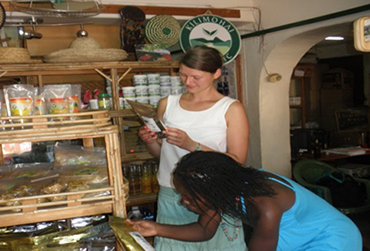Consumer Characteristics and determinants of their Preferences for Organic Products, Uganda
Stephen Anecho, Msc Uganda
In Uganda, two broad strands of organic agriculture exist i.e. there is organic agriculture which is inspected and organically certified and thus necessary when commodities are traded on international organic markets and on the other hand, there exists organic agriculture which is non-certified but compliant with organic principles and standards. In fact, there is a popular notion that agriculture production in Uganda is ‘organic by default’ meaning majority of the agriculture products qualify as organic because of the limited use of synthetic chemicals on the farms.
At the onset of this survey, there were reports from the national organic agriculture movement in Uganda (NOGAMU) that there were increases in domestic demand for organic products from their various domestic retail outlets. However much as this had been reported it was still anecdotal. As a socio economist my motivation was to estimate the demand and find out why the increase was happening and what was causing the increase in demand. This led me into setting up key research questions to investigate more into this promising new market. Among others, the market survey I commissioned went out to investigate and find out answers to the following questions: “who is buying organic products, how do they differ from the rest of the population in terms of their preferences, attitudes and their considerations of choice of organic food, and what were the factors motivating the consumption of organic food.” Among the key consumer considerations that I hypothesised to be behind the increase in consumption of organic products were price, health concern, nutritional value and environmental.
From the survey, I found out that: “being a female shopper doubled the odds of being an organic consumer as compared to males. In addition being a person of foreign descent was associated with higher odds of being an organic consumer as compared to being of Ugandan decent; this validated the hypothesis that domestic consumers of organic products are mainly of foreign descent. Fresh fruits (pineapples, jackfruits and bananas) and an assortment of vegetables were identified as the most regularly purchased organic product. The study further revealed two major consumer segments for organic product namely “occasional” and “dedicated consumers.
With the above information, I believe domestic organic food growers, processors and distributors can utilise the messages to better position their numerous organic products. These findings are also very useful to managers of domestic organic retail outlets in crafting appropriate and more effective marketing that suit the different organic market segments. Based on the findings of this survey, further research aimed at utilising long-term time-series data at the major will be useful in helping to estimate real demand, and help in getting an empirical demand analysis and willingness to pay for selected organic products.

Photo: Some shoppers making a careful selection of organic products at “shop Organic”
More about the project

Stephen Anecho, MSc.
Makerere University, Uganda.
Enrolment date: Feb 2011
Main Supervisor: J. Mugisha External supervisors: Kostas Karantininis/Paul Kledal
Stephen Anecho graduated in January 2016. He is currently working as an Associate Agricultural Economist with the consulting company Knowledge-Wells Agricultural Consult Ltd in Kampala. He is overseeing the development of technical and financial proposals, project designing and planning of projects; providing development consultancy services to both private and public sector entities in aspects related to business development in agriculture and related disciplines, marketing and market analysis, and baseline studies and feasibility studies; as well as entrepreneurship training, coaching and mentoring, business opportunity identification.
